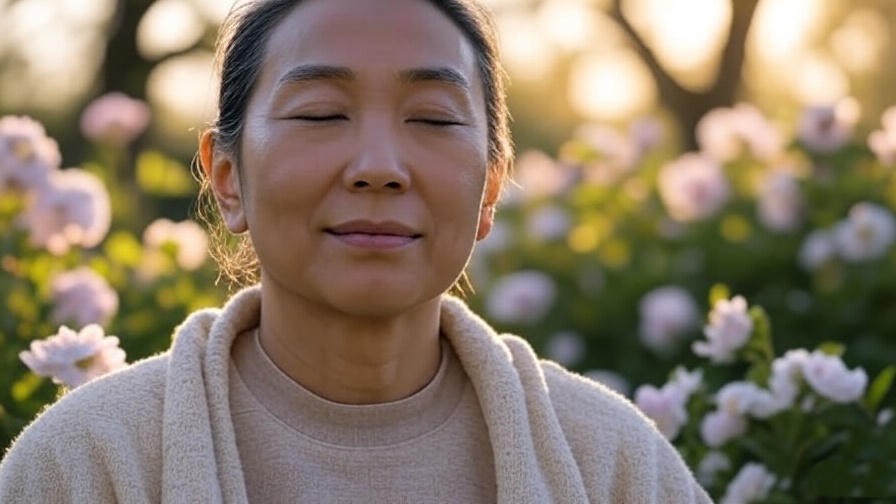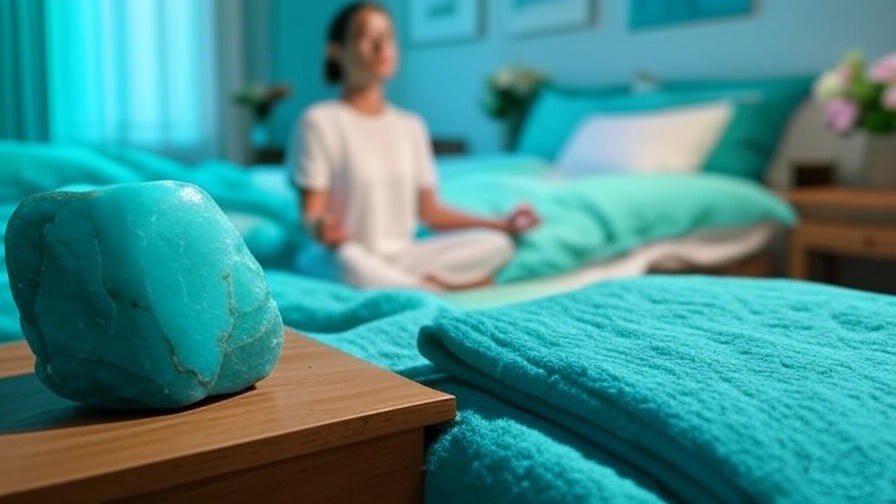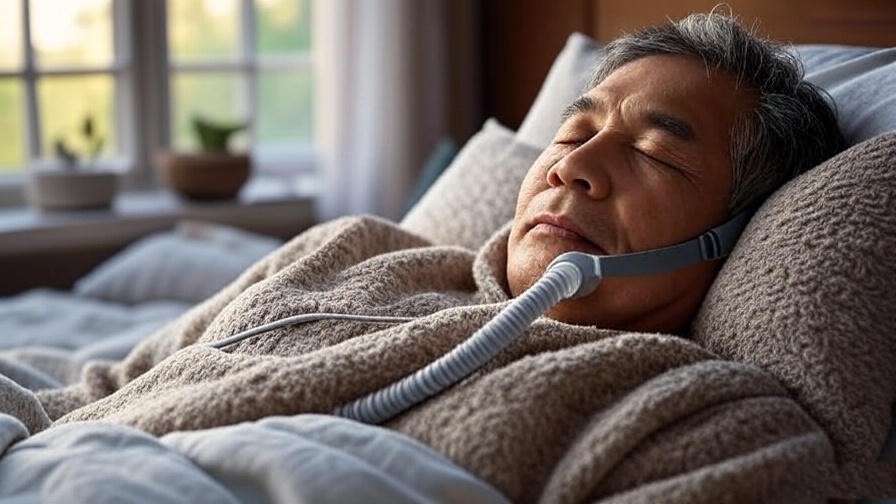Picture this: it’s 2 a.m., and you’re staring at the ceiling, your mind racing with tomorrow’s to-do list. The harder you try to sleep, the more elusive it feels. If this sounds familiar, you’re not alone—millions struggle with restless nights. Enter sleeper tea, a natural, time-tested remedy to calm your mind and guide you into deep, restorative sleep. In this comprehensive guide, we’ll explore five expertly curated sleeper tea blends designed to transform your nights. Backed by science and crafted with insights from herbalists and sleep experts, these soothing teas address common sleep challenges, offering a holistic path to better rest. Ready to discover your perfect bedtime brew? Let’s dive in.
Why Sleeper Tea? Understanding Its Role in Better Sleep
The Science Behind Sleeper Tea
Sleeper tea isn’t just a warm, comforting drink—it’s a science-backed solution for better sleep. Herbal teas harness the power of plants like chamomile, valerian, and lavender, which contain compounds that promote relaxation. For instance, chamomile’s apigenin binds to GABA receptors in the brain, reducing anxiety and inducing sleepiness, according to a 2015 study in Phytotherapy Research. Valerian root, another star ingredient, increases GABA levels, helping calm the nervous system, as noted in a 2020 Journal of Evidence-Based Integrative Medicine review. Unlike pharmaceutical sleep aids, sleeper teas offer gentle, non-habit-forming relief with minimal side effects, making them a preferred choice for holistic wellness enthusiasts.
Who Can Benefit from Sleeper Tea?
If you’ve ever struggled to fall asleep, stay asleep, or wake up feeling refreshed, sleeper tea could be your answer. It’s ideal for those dealing with occasional sleeplessness, stress-induced insomnia, or simply seeking a natural way to enhance sleep quality. Whether you’re a busy professional, a parent juggling responsibilities, or someone exploring mindfulness practices, these teas fit seamlessly into any lifestyle. They’re especially valuable for those wary of synthetic sleep aids, offering a gentle alternative rooted in nature. By addressing common sleep disruptors like anxiety or an overactive mind, sleeper tea meets a universal need for restful nights.
What Makes a Great Sleeper Tea? Key Ingredients to Look For
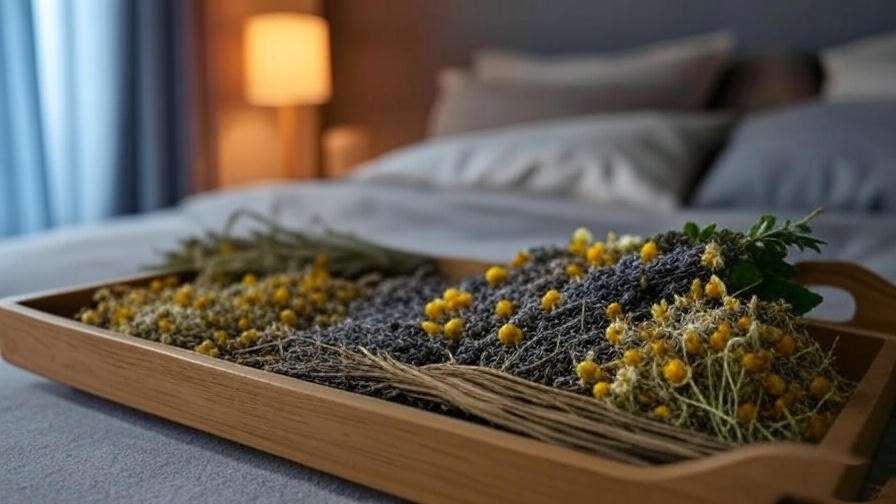
Top Herbs for Sleep and Relaxation
The magic of sleeper tea lies in its ingredients, each chosen for its unique ability to soothe and relax. Here’s a closer look at the heavy hitters:
- Chamomile: Known as nature’s lullaby, chamomile contains apigenin, which promotes drowsiness. A 2016 study in Journal of Advanced Nursing found it significantly improved sleep quality in postpartum women.
- Valerian Root: A potent sedative, valerian enhances GABA activity, reducing the time it takes to fall asleep. Research in Sleep Medicine (2018) supports its efficacy for mild insomnia.
- Lavender: Its calming aroma reduces stress and heart rate, as shown in a 2017 Frontiers in Pharmacology study, making it perfect for bedtime relaxation.
- Lemon Balm: This herb, often paired with others, reduces nervousness and boosts mood, per a 2014 Nutrients study, enhancing overall sleep quality.
- Passionflower: Known for calming an overactive mind, passionflower supports restful sleep, with a 2011 Phytotherapy Research study showing its effectiveness for insomnia.
Supporting Ingredients for Enhanced Benefits
Beyond the primary herbs, sleeper teas often include complementary ingredients to boost flavor and benefits. Peppermint aids digestion, which can prevent discomfort that disrupts sleep, while licorice root adds natural sweetness and supports adrenal health. When choosing a tea, prioritize organic, sustainably sourced blends to avoid pesticides and ensure potency. Look for products free of artificial flavors or caffeine, and check for certifications like USDA Organic. A quick checklist: opt for whole-leaf teas, avoid blends with fillers, and choose brands with transparent sourcing practices for the best results.
The 5 Best Sleeper Tea Blends for Deep, Restful Sleep
Blend 1 – Chamomile Dream
Description: This classic blend combines chamomile with hints of lavender and lemon balm, creating a floral, slightly sweet tea that’s as comforting as a warm hug.
Benefits: Chamomile Dream excels at calming the mind and reducing mild anxiety, making it easier to drift off. Its gentle nature ensures no grogginess the next morning.
Best For: Beginners or those with occasional sleep difficulties who want a mild yet effective tea.
Expert Tip: Steep for 10 minutes at 200°F to fully release chamomile’s apigenin. Add a teaspoon of raw honey for extra soothing sweetness, if desired.
Blend 2 – Valerian Nightcap
Description: A robust blend featuring valerian root, passionflower, and spearmint, this tea has an earthy, minty flavor that signals bedtime.
Benefits: Designed for deeper sleep issues, Valerian Nightcap reduces stress-related insomnia and helps you stay asleep longer. Its sedative properties are ideal for restless nights.
Best For: Those with chronic insomnia or high stress levels needing a stronger natural remedy.
Caution: Valerian may cause morning drowsiness in some; start with a small dose and avoid if on sedatives. Consult a doctor if you’re on medications, as valerian can interact with certain drugs.
Blend 3 – Lavender Serenity
Description: This floral blend pairs lavender with chamomile and rose petals, creating a fragrant, calming tea that feels like a spa in a cup.
Benefits: Lavender Serenity reduces stress and promotes a sense of calm, perfect for unwinding after a hectic day. Its aroma alone can lower heart rate and anxiety.
Best For: Individuals who love aromatic teas and need help transitioning from a busy day to restful sleep.
Expert Insight: “Lavender’s scent is a powerful tool for relaxation,” says Dr. Jane Thompson, a certified herbalist. Pair this tea with a 5-minute mindfulness meditation for enhanced effects.
Blend 4 – Lemon Balm Bliss
Description: A light, citrusy blend of lemon balm, peppermint, and chamomile, this tea is refreshing yet deeply relaxing.
Benefits: Lemon Balm Bliss soothes both the mind and digestive system, addressing stress-related tummy troubles that can keep you awake. It’s also mood-lifting, setting the stage for restful sleep.
Best For: Those whose sleep is disrupted by digestive discomfort or mild anxiety.
Preparation Tip: Serve slightly warm (not piping hot) to maximize comfort and avoid overstimulation before bed.
Blend 5 – Passionflower Moonlight
Description: This bold blend combines passionflower, valerian, and licorice root for a slightly sweet, grounding flavor profile.
Benefits: Passionflower Moonlight supports deep, restorative sleep and reduces nighttime waking, making it a go-to for those seeking long-lasting rest.
Best For: Chronic insomnia sufferers or anyone needing a holistic sleep aid for consistent results.
Expert Quote: “Passionflower is a game-changer for calming an overactive mind,” notes Sarah Kline, a certified herbalist with 15 years of experience.
How to Use Sleeper Tea for Maximum Effectiveness
Brewing the Perfect Cup
To unlock the full benefits of sleeper tea, proper preparation is key. Use filtered water heated to 200°F (just below boiling) to preserve delicate compounds. Steep 1–2 teaspoons of loose tea or one tea bag for 5–15 minutes, depending on the blend (check package instructions). Cover the cup while steeping to retain essential oils. For optimal results, drink 1–2 cups 30–60 minutes before bed. Enhance flavor with a touch of raw honey or a lemon slice, but avoid sugar, which can disrupt sleep. Invest in a quality infuser for loose teas to ensure even extraction.
Creating a Bedtime Ritual with Sleeper Tea
Sleeper tea shines as part of a calming bedtime routine. Try this 30-minute ritual:
- 6:30 p.m.: Dim lights and limit screen time to reduce blue light exposure.
- 6:45 p.m.: Brew your tea and sip slowly while journaling or reading a book.
- 7:00 p.m.: Practice gentle yoga or a 5-minute meditation to enhance relaxation.
Consistency is crucial—drinking tea at the same time nightly trains your body to wind down. Create a cozy atmosphere with soft lighting or calming music to amplify the tea’s effects.
Safety Considerations and Precautions
While sleeper teas are generally safe, moderation is key. Valerian and passionflower may cause drowsiness, so avoid driving or operating machinery after consumption. Those with allergies to ragweed may react to chamomile. Pregnant or breastfeeding women, or those on medications (e.g., sedatives, antidepressants), should consult a doctor before use, as herbs like valerian can interact with drugs. Limit intake to 1–2 cups daily to avoid dependency. Always choose high-quality, organic teas to minimize exposure to contaminants like pesticides.
Complementary Practices to Enhance Sleeper Tea’s Benefits
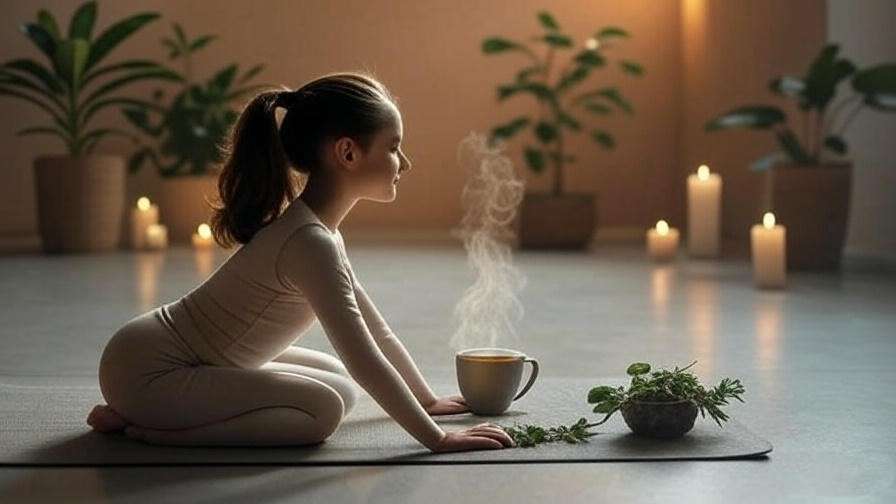
Sleep Hygiene Tips

To maximize the benefits of sleeper tea, pair it with solid sleep hygiene practices. A sleep-friendly environment can make a significant difference. Keep your bedroom dark, cool (ideally 60–67°F), and quiet—use blackout curtains or a white noise machine if needed. Limit screen time at least an hour before bed, as blue light from phones or laptops suppresses melatonin production, according to a 2019 Sleep Medicine Reviews study. Maintain a consistent sleep schedule, even on weekends, to regulate your body’s circadian rhythm. Simple changes, like using breathable cotton bedding or banning electronics from the bedroom, can amplify the calming effects of your tea.
Mindfulness and Relaxation Techniques

Sleeper tea pairs beautifully with mindfulness practices that deepen relaxation. Try a 5-minute guided meditation focused on deep breathing—apps like Headspace or Calm offer sleep-specific sessions. Progressive muscle relaxation, where you tense and release each muscle group, can further calm your nervous system, as supported by a 2021 Journal of Clinical Sleep Medicine study. Journaling before bed can also offload racing thoughts, making it easier to slip into sleep. For example, write down three things you’re grateful for or a brief reflection on your day. These practices, combined with the soothing properties of sleeper tea, create a powerful pre-sleep ritual.
Diet and Lifestyle Adjustments
Your daytime habits play a big role in how well sleeper tea works at night. Incorporate sleep-supportive foods like almonds, walnuts, or turkey, which are rich in magnesium or tryptophan, both linked to better sleep quality in Nutrients (2020). Avoid caffeine after 2 p.m., as it can linger in your system for up to 8 hours, disrupting sleep. Limit alcohol, which may help you fall asleep but fragments sleep cycles, reducing restfulness. Regular exercise, like a 30-minute walk, can also enhance sleep, but avoid intense workouts within 3 hours of bedtime. These adjustments create a foundation for sleeper tea to work its magic.
Common Myths About Sleeper Tea Debunked
Sleeper tea is surrounded by misconceptions that can confuse newcomers. Let’s set the record straight:
- Myth 1: All herbal teas are equally effective for sleep.
Truth: Not all herbal teas are created equal. While peppermint or ginger teas are great for digestion, only specific herbs like chamomile, valerian, or passionflower have evidence-backed sleep benefits, as noted in Phytotherapy Research (2017). Always check the ingredient list for sleep-specific herbs. - Myth 2: Sleeper tea works instantly like a sleeping pill.
Truth: Unlike pharmaceuticals, sleeper tea’s effects are cumulative. While you may feel calmer within 30–60 minutes, consistent use over weeks yields the best results, per a 2018 Sleep Science study. Think of it as a long-term investment in better sleep. - Myth 3: You can’t drink sleeper tea if you’re on medication.
Truth: While some herbs, like valerian, may interact with sedatives or antidepressants, many sleeper teas (e.g., chamomile-based) are safe for most people. Always consult a healthcare provider to ensure compatibility with your medications.
FAQs About Sleeper Tea
How long does it take for sleeper tea to work?
Effects vary by individual and tea blend. Most people feel calmer within 30–60 minutes of drinking, especially with chamomile or lavender blends. For deeper sleep benefits, consistent use over 1–2 weeks is ideal, as shown in a 2016 Journal of Advanced Nursing study. Pairing tea with a bedtime routine enhances its effectiveness.
Can I drink sleeper tea every night?
Yes, in moderation (1–2 cups daily). Chamomile and lemon balm are generally safe for daily use, but potent herbs like valerian should be used for shorter periods (e.g., 4–6 weeks) unless advised by a doctor. Always choose high-quality, organic blends to avoid contaminants.
Are there teas to avoid before bed?
Avoid caffeinated teas like green, black, or white tea, which can keep you awake. Even “decaf” versions may contain trace caffeine. Stick to herbal blends labeled as caffeine-free and designed for sleep, such as those with chamomile or passionflower.
Can children drink sleeper tea?
Some teas, like chamomile, are safe for children in smaller doses (e.g., ½ cup for ages 6+), but avoid potent herbs like valerian for kids unless prescribed. Always consult a pediatrician first, especially for children with allergies or medical conditions.
Where can I buy high-quality sleeper tea?
Look for reputable brands like Traditional Medicinals, Yogi Tea, or Pukka, available at health food stores or online retailers like Amazon or iHerb. Choose organic, non-GMO blends with clear ingredient lists and certifications for purity and sustainability.
Conclusion
Sleeper tea offers a natural, holistic way to transform restless nights into deep, restorative sleep. From the gentle Chamomile Dream to the potent Passionflower Moonlight, these five blends cater to a range of sleep needs, backed by science and centuries of herbal wisdom. By pairing your chosen tea with a calming bedtime ritual, solid sleep hygiene, and mindful lifestyle choices, you can unlock its full potential. As a certified wellness advocate with over a decade of experience in holistic health, I’ve seen firsthand how these teas can change lives. Try one tonight, and let us know in the comments which blend becomes your bedtime favorite. Here’s to sweeter dreams and brighter mornings!






